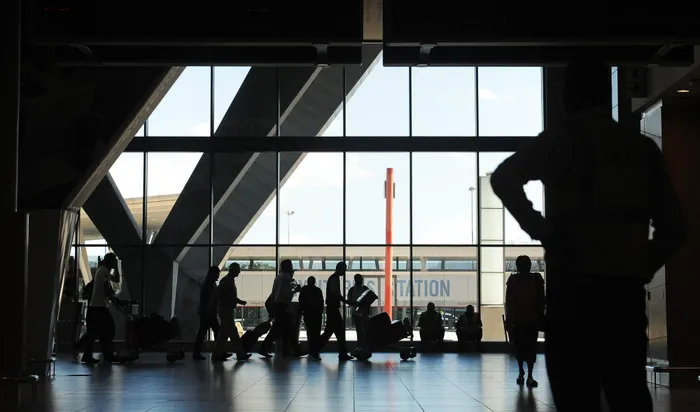Airports company expects turnaround after improved losses

Cape Town International Airport, which is operated by Acsa. Picture: David Ritchie/African News Agency/ANA
Airports Company South Africa (Acsa) expects to return to profitability in the next financial year after narrowing its after-tax loss to R143 million in the 2022/23 financial year, down from a R1 billion loss in previous year.
The last time Acsa reported a profit was in the pre-Covid era when profit plunged by 58.9% to R227m in the 2018/19 financial year after making a R7.1bn revenue, weighed down by weak domestic economy.
The state-owned airports operator yesterday delivered steady recovery and significant improvement in performance for the year to March 31, 2023, as Covid-19 related travel restrictions were progressively lifted in all major air travel markets.
The group reported a 55% surge in revenue to R6bn for the 12-month period, up from the R3.9bn reported in the previous financial year.
Acsa continued to tightly control operating expenditure at increased operating levels, which increased by 10% at R3.5bn from the previous year’s R3.3bn.
However, high credit losses on trade receivables and fair value losses on investment properties impacted profitability, hence the R143 million loss for the year.
Acsa said its Recover and Sustain Strategy and the revised Financial Plan provided a structured management approach, and a means of resourcing the business in a way that enabled the group to secure and safeguard its long-term sustainability.
Acsa CEO Mpumi Mpofu said the results reflected the group’s steady trajectory towards recovery and a move closer to profitability, following the turbulent trading conditions brought on by the Covid-19 pandemic.
Mpofu said Acsa was looking to profitability in the 2023/24 financial year and would not be raising any additional debt over the next 12 months.
She said it continued to monitor the business environment to determine appropriate responses to ensure the group’s long-term sustainability.
“We are projecting to return to profitability in the 2023/24 for a financial year, and we will be able to fund our commitments as they become payable using our internally generated cash in the main,” Mpofu said.
“The majority of the capex investments will still be on refurbishment and placement projects in the 2023/24 financial year.”
Capital expenditure was limited to airport maintenance and repairs during the financial year, with most uncontracted projects remaining on hold until funding.
A total of R422m, down from R546m a year before, was spent on those projects in the current financial year.
Mpofu said that as part of Acsa’s recovery, all facilities that were mothballed during Covid-19 had been brought back online due to increased volumes, and to maintain Acsa’s status as a world class airport management company.
“Investment in new capacity is on the cards, but that will be based on focused traffic and availability of funding over the corporate period,” she said.
“We were granted a CPI tariff increase of over 4% on aeronautical charges, which we implemented from the 1st of May 2023, pending the finalisation of permission for the 2024/25 financial year period.”
Operating expenditure increased by 10% to R2.2bn from R2bn due to increases in the cost of maintenance and information systems, reflecting the full reopening of airports and supporting services.
Utilities costs, in particular, increased due to higher consumption and higher energy prices.
Acsa’s earnings before interest, tax, depreciation, and amortisation (Ebitda) amounted to R2.0bn, up from R342m in the 2021/22 financial year.
Aeronautical revenue improved significantly by 64% to R3bn from R1.8bn the previous year.
This was mainly due to a 20% increase in aircraft movement to 211 787 from 176 817 previously, and a 50% increase in the number of departing passengers to 15.8m from 10.5m the year before.
The implementation of the 3.1% tariff increase approved by the regulator also contributed to the increase in revenue.
Non-aeronautical revenue followed a similar trend, increasing by 46% to R3.1bn from R2.1bn, and reflecting significant improvement in trading conditions during the year.
The bulk of this income was derived from property rentals at R982m, and retail activities at R848m.
Mpofu said Acsa had been looking to maintain an ideal 50:50 split between aeronautical and non-aeronautical revenue, but the constraints on the two revenue streams were largely interdependent because non-aeronautical revenue was driven by aeronautical activity.
“To ensure profitability, we need to ensure operational efficiency, full utilisation of our R30bn asset base, diversify our revenue streams and growth of the business through new commercial initiatives.
“Our 76% recovery for the year under review compared to 2019 levels, our performance on aeronautical and non-aeronautical revenue ensure that, in the next financial year we are projecting to achieve marginal profits.”
BUSINESS REPORT